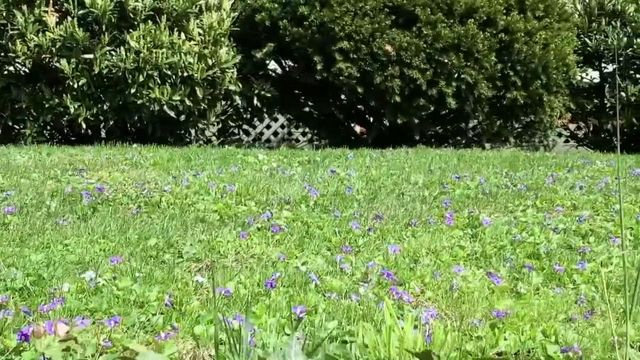Go wild(er): Embrace an eco-friendly lawn
Many homeowners strive to have a lush, green lawn, but it comes at a price – not just to the wallet, but to the environment.
“I’m trying to do everything in my power to cut my carbon footprint, so by just not having to water my lawn, by not mowing and blowing and burning gas,” says Susan Rubin.
Her yard is a field of wildflowers and dandelions.
Those who want a lush lawn are willing to pay big for it, spending about $35 billion a year on lawn and garden products.
Experts say while synthetic lawn-care products can help in the short term, over time, they’re costly to the ecosystem and human health.
“You can track pesticides into your home from the lawn, where they can get into the dust on your floor and your carpet, and then children can be exposed to that," says Catherine Roberts, Consumer Reports’ health editor. "Several common lawn pesticides are suspected to be linked to a variety of issues like diabetes and reproductive and developmental problems.”
The pesticide and fertilizer industry says the EPA’s approval of existing lawn pesticides means the chemicals should be safe to use as directed on the label. But some safety advocates say the agency’s testing requirements are outdated.
Either way, Consumer Reports says taking a more eco-friendly approach to lawn care is not that complicated.
“It may seem counterintuitive, but cut back on watering your lawn. Because watering less will encourage the grass to grow deeper roots, and develop resistance to drought,” said Roberts.
Water only during the early morning so that you don’t promote fungus.
Keep the grass a little taller, about three or four inches, and when you mow use the mulching mode. Grass clippings contain many of the same nutrients found in chemical-based fertilizers.
Clover, too, is good for your lawn. It adds nitrogen and keeps other weeds at bay.
While some say a weed is just a plant growing in the wrong place, Rubin feels wherever they grow is the right place.
“It’s about changing our aesthetic. I see this as beautiful,” she said.
Lawns do have different needs depending on sun exposure, soil and the type of grass. The local cooperative extension service can offer for advice tailored to a specific lawn.
Here is where you’ll find North Carolina State University’s organic lawn care guide.











